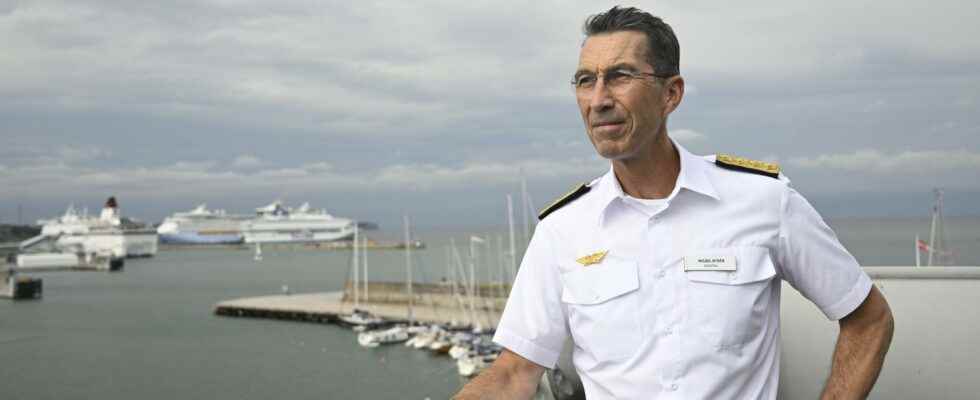Published: Less than 30 minutes ago
Commander-in-Chief Micael Bydén reckons that the war in Ukraine could last for several years.
– The defense takes into account a long-term conflict, he says.
This means continued contingency adjustments for the defense. For example, increased incident preparedness, more flights in the air, increased maritime surveillance and more exercises.
– The intensity of our business has been high, says Bydén.
He expresses it as if the units continue to be “heavy”, which challenges the endurance of the Armed Forces. This increased activity in the Armed Forces may be needed for a long time to come.
“Unfortunately, we believe that an end to the war is distant,” says Bydén.
According to ÖB, there are no signs that Russia has toned down its objectives of taking over more territory in Ukraine, even if it has slowed down.
“Must not happen”
The Armed Forces believes that Russia now wants to consolidate the positions in eastern and southern Ukraine that Russia has conquered since February 24, before taking the next step. Those areas could then be used for future Russian conquests against the rest of Ukraine.
– There is nothing that needs to happen this year, it can happen in a few years, says Bydén.
According to him, the Russian hope is that Western cohesion and determination during that time will crack.
– It must not happen, says Bydén.
Modest action
The Armed Forces also expects that Russia will continue to be an unpredictable player in our immediate area. So far, however, the number of violations of Swedish territory has not been more than before.
– What we see so far is a rather modest action. But the rhetoric is quite harsh at times, says Bydén.
However, he warns against relaxing and adds that the Armed Forces does not rule out anything.
– Just because Russia does not do anything against us in this situation, does not mean that they do not do anything in the future.
ÖB notes that the Russian military resources, especially the ground-based ones, are largely tied up in Ukraine.
“Right now we do not see any worrying Russian military movements along our borders,” says Bydén.
High expectations
He thinks that Sweden’s decision to apply for NATO membership is militarily strategically correct. The Armed Forces is now preparing a report to the government on what Sweden could contribute to NATO.
First and foremost, it is about being able to defend Sweden’s own territory, but also about helping to deter Russia from attacking other NATO countries.
It is still too early to say what Sweden will contribute, but ÖB says:
– We must be prepared for the fact that there are a lot of expectations of us.
Examples of what may be considered are a Swedish contribution to NATO’s multinational battle groups in the Baltics or having a troop ready to be able to participate in and defend Finland.
– Is it a permanent presence in the Baltics that we should invest in or do something together with Finland or an effort somewhere else entirely? says ÖB.
Political decisions
What Sweden’s contribution to NATO’s collective defense should look like is a question for the government and the Riksdag. ÖB states, however, that when the Swedish Malian force is taken home in a year, then the Armed Forces will only have around 50 people left in international service.
– It’s all time low. I do not think it reflects the political will and ambition in Sweden, he says.
Bydén therefore expects that Sweden will make a decision to contribute to NATO’s collective defense outside Sweden’s borders.
Another issue that ÖB believes will be considered before a NATO membership is whether the defense alliance will be able to deploy heavy military equipment in advance in Sweden. NATO has plans to build up such stockpiles of munitions in various member countries in order to be able to quickly send reinforcement forces there in a crisis situation.
Nuclear weapons red line
If NATO concludes that a special operational headquarters is needed for northern Europe, the question may arise whether it should be located in Sweden, or some other Nordic country.
ÖB does not want to say whether the Armed Forces wants such a headquarters on Swedish soil, but refers to the fact that it is a political decision.
Placing nuclear weapons in Sweden is not relevant.
– It is obvious that it is a red line, so you do not need to discuss it, says Bydén.
If NATO invests heavy equipment in Sweden or a NATO staff here in the future, there may be counter-reactions from Russia, especially in the form of Russia placing weapons systems and troops closer to Sweden.
– You should be aware that you have marked it, says Micael Byden.
